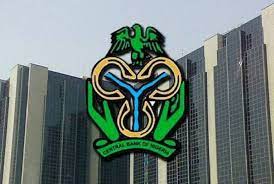FG Defends Plan to Rebase GDP, Explains Why CBN Deferred January MPC Meeting
CHIGOZIE AMADI
The federal government yesterday defended its plan to rebase the Gross Domestic Product (GDP), declaring that the ongoing efforts will make the economic data ‘look better’.
Special Adviser to the President on Economic Affairs, Dr. Tope Fasua, spoke in a presentation on: “Economic Scorecard: A Positive Projection into The Future,” at the Lagos Chamber of Commerce and Industry’s (LCCI) “2025 LCCI Economic Review and Outlook Conference.”
According to Fasua, the economic reforms that were initiated by President Bola Tinubu’s administration have enabled Nigeria to achieve trade surpluses in four successive quarters and is also forcing behavioural changes on Nigerians and businesses.
He said: “Our numbers will look better when that rebasing happens. And I think we need it since the president has promised $1 trillion GDP. If we said that we are going to achieve $1 trillion and we end up at $650 billion, then there is nothing bad.”
He explained that it is taking Nigeria 11 years to rebase its economy after the last exercise was carried out in 2014, even though the practice is to carry out the exercise every five years.
The special adviser further explained that rebasing is just about accounting accuracy to know what is growing and what is not growing.
“It is a new calibration of the economy, especially now that we have a new economy that is not being tracked. Entertainment, especially music, is supposed to be our biggest (economic) sector. We need a lot more growth because we are hungry for growth. With a population growth rate of 2.5 and 2.6 per cent, we need to accelerate our growth.
“If we want to achieve this $1 trillion or anything near it, we must be targeting double digit GDP growth,” he stated.
Fasua also disclosed that the Central Bank of Nigeria (CBN) has postponed its Monetary Policy Committee (MPC) meeting for this month (January) into next month (February) to see how rebasing will be.
He also said that the devaluation of the Naira has boosted the performance of non-oil exports, but doubted if the foreign exchange is being repatriated.
“We get to this inflection point in the value of the Naira that is now driving export. But the money can go in various directions due to the sophisticated financial system that enables young Nigerians to invest in the New York exchange when it is even much more difficult to get into the stock market in Nigeria.
“A lot of our harvests were bought up by people in Niger, Chad, Benin and Cameroon. Benin particularly targets our soybean. It is one of the crops that we cannot give enough to the world. So, nothing stops us from producing more.
“Less than 5.0 per cent, even one per cent, of what our entertainers earn externally come back to Nigeria. They open accounts in all the tax havens around the world. Only the ‘change’ they bring to Nigeria,” Fasua said.
He also said that the reforms initiated by the federal government are driving behavioural change in the country, arguing that Nigeria must stay the course as far as the reforms are concerned.
Also, Chairman, Presidential Committee on Fiscal Policy and Tax Reform, Mr. Taiwo Oyedele, who sent a recorded address to the conference, said rebasing the GDP has raised debate on the morality and legality of some economic activities that should be included in the GDP.
Oyedele said that if these debates are pushed aside, “rebasing the GDP with or without the inclusion of the black economy will mean a lot for Nigeria.
“It will have an impact on our projected tax to GDP ratio,” he said, noting that “what is important is how we are perceived by investors as to our ability to buy whatever they will produce.”
He added: “The bigger the size of the economy, the bigger the per capita income and the more attractive the country will be.”
Speaking during the LCCI’s conference, the Founder and Chief Executive Officer of BAA Consult, Dr. Biodun Adedipe, said that rebasing the country’s GDP is essential because what the economy looked like 10 years ago is not what it is currently.
Adedipe pointed out that there have been some sectors that have either diminished or expanded significantly.
He said: “When we rebase, we are simply recognising the reality of today. The only reason Nigeria’s economy’s size is where it is now is that over time we have had to devalue our currency.
“If we did not devalue overtime, Nigeria’s economy would be probably over $2 trillion today. It means that it is the exchange value of our currency that is really the issue.”





















